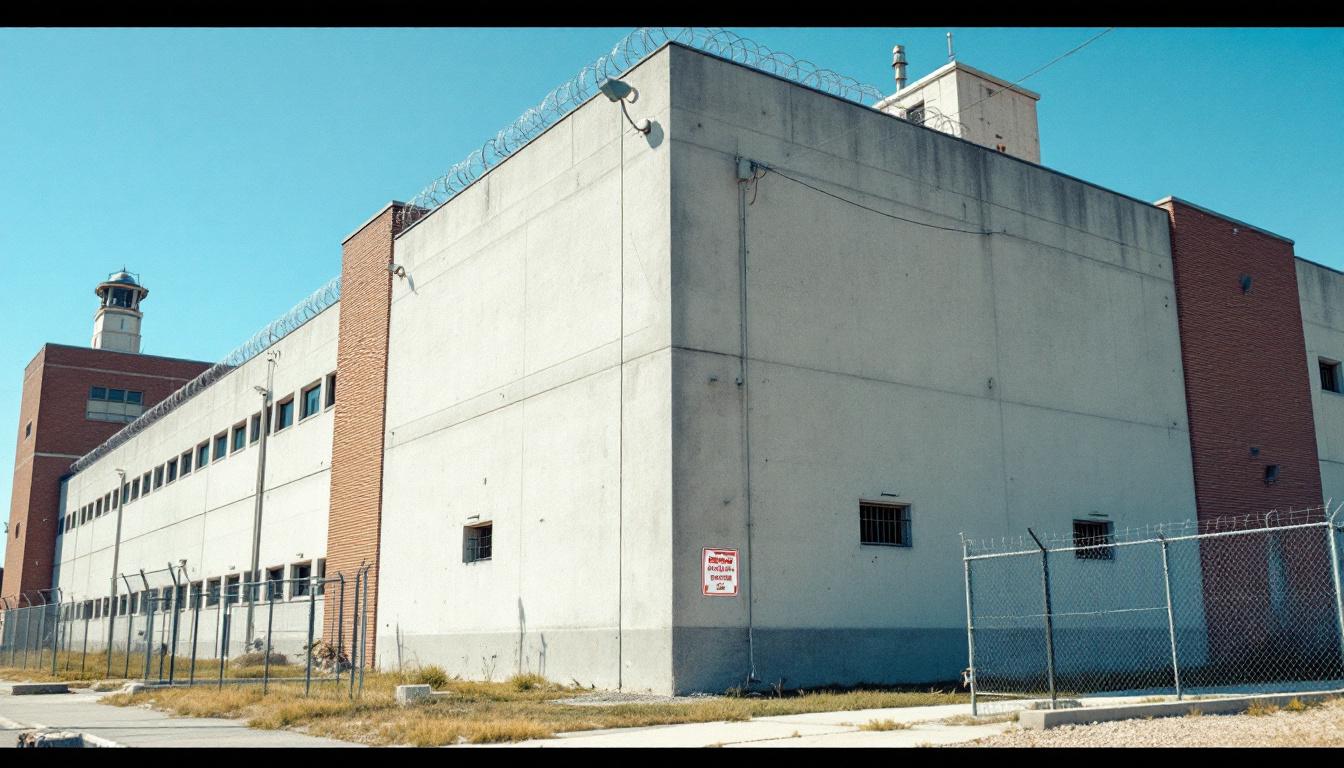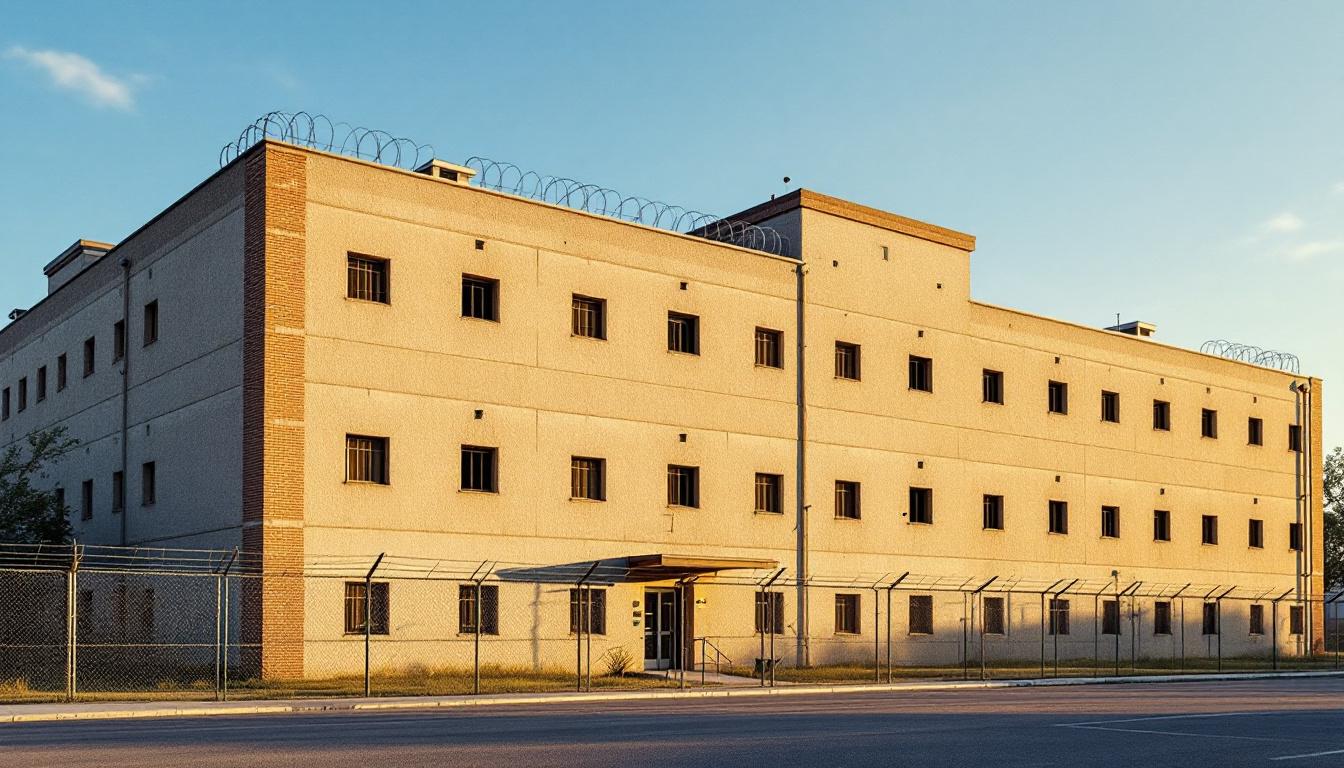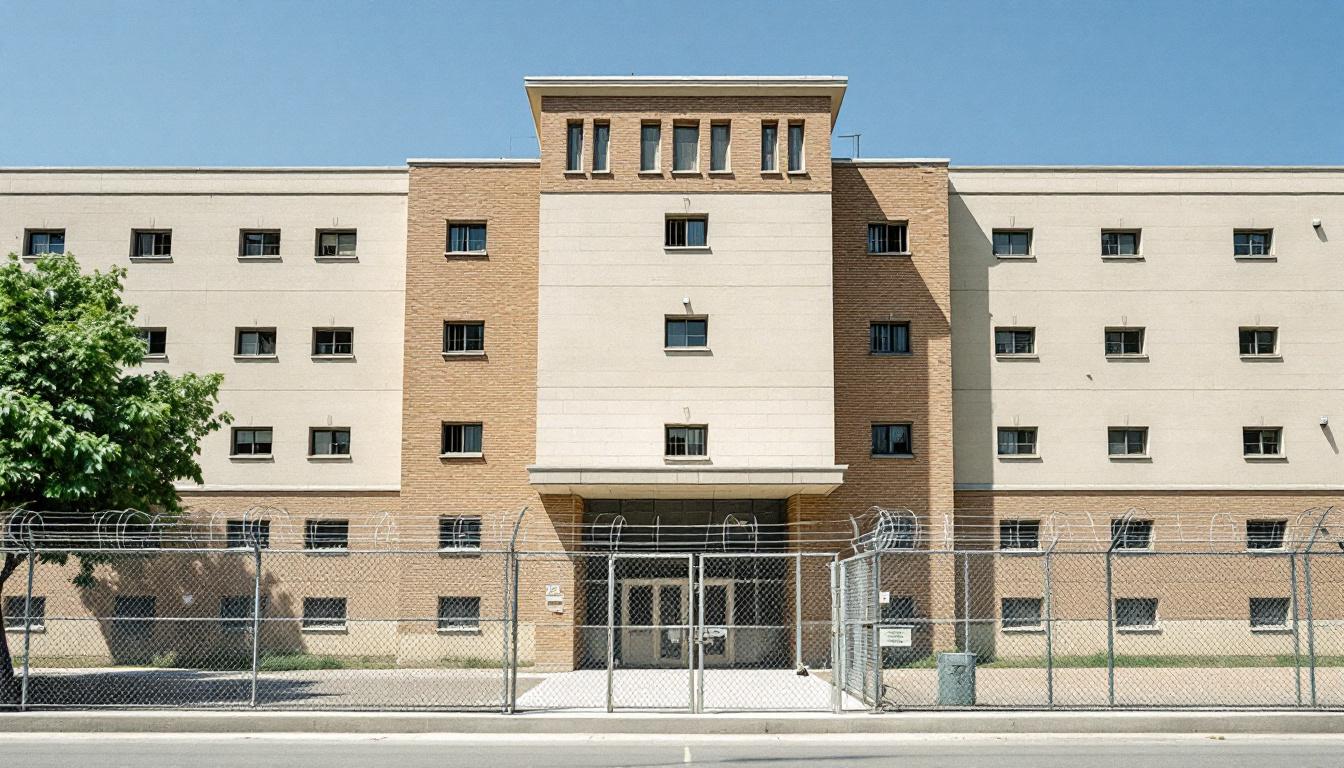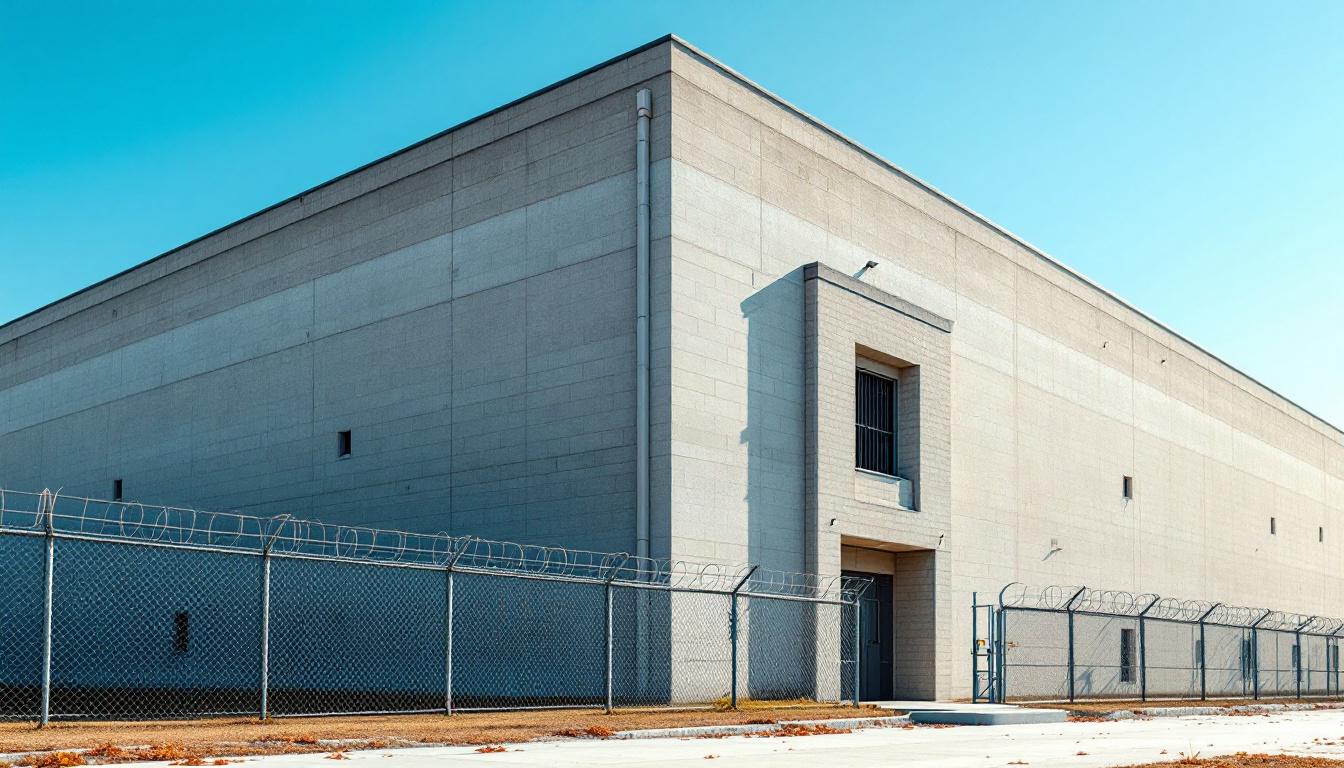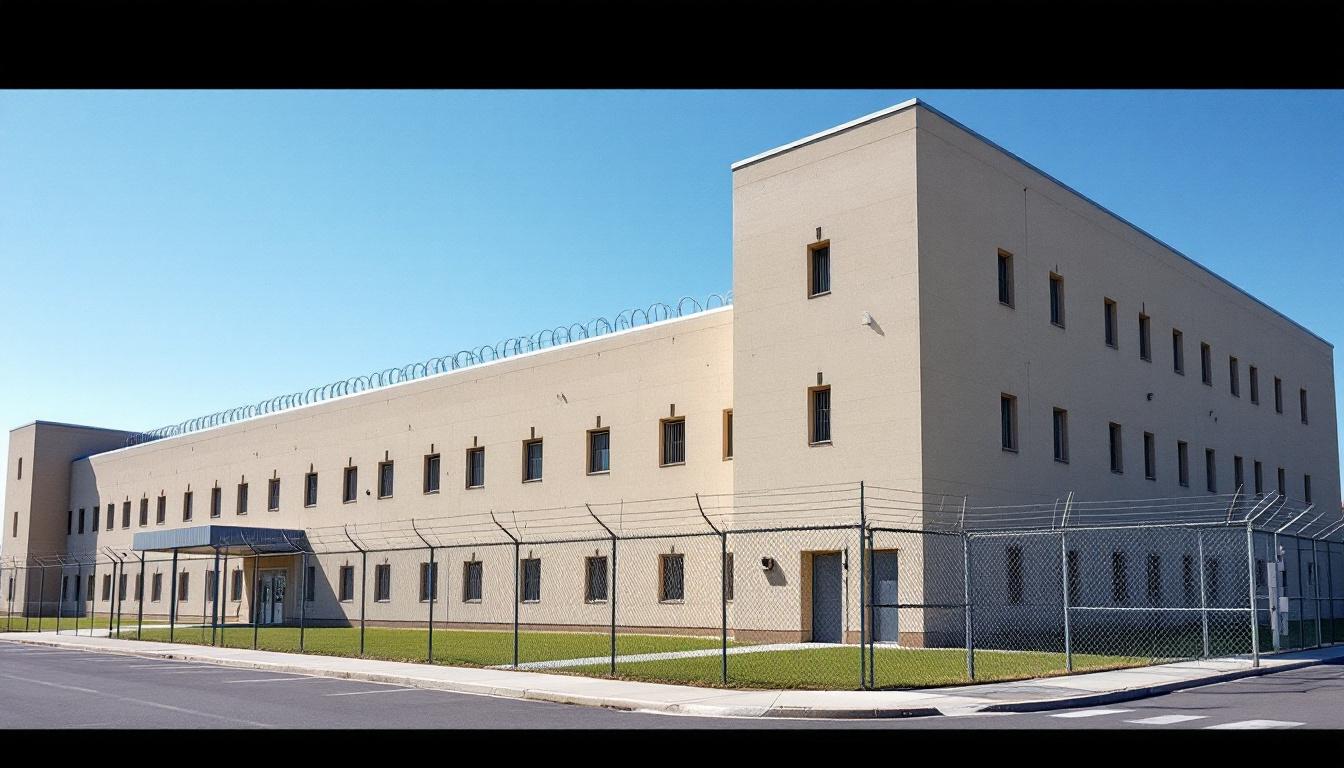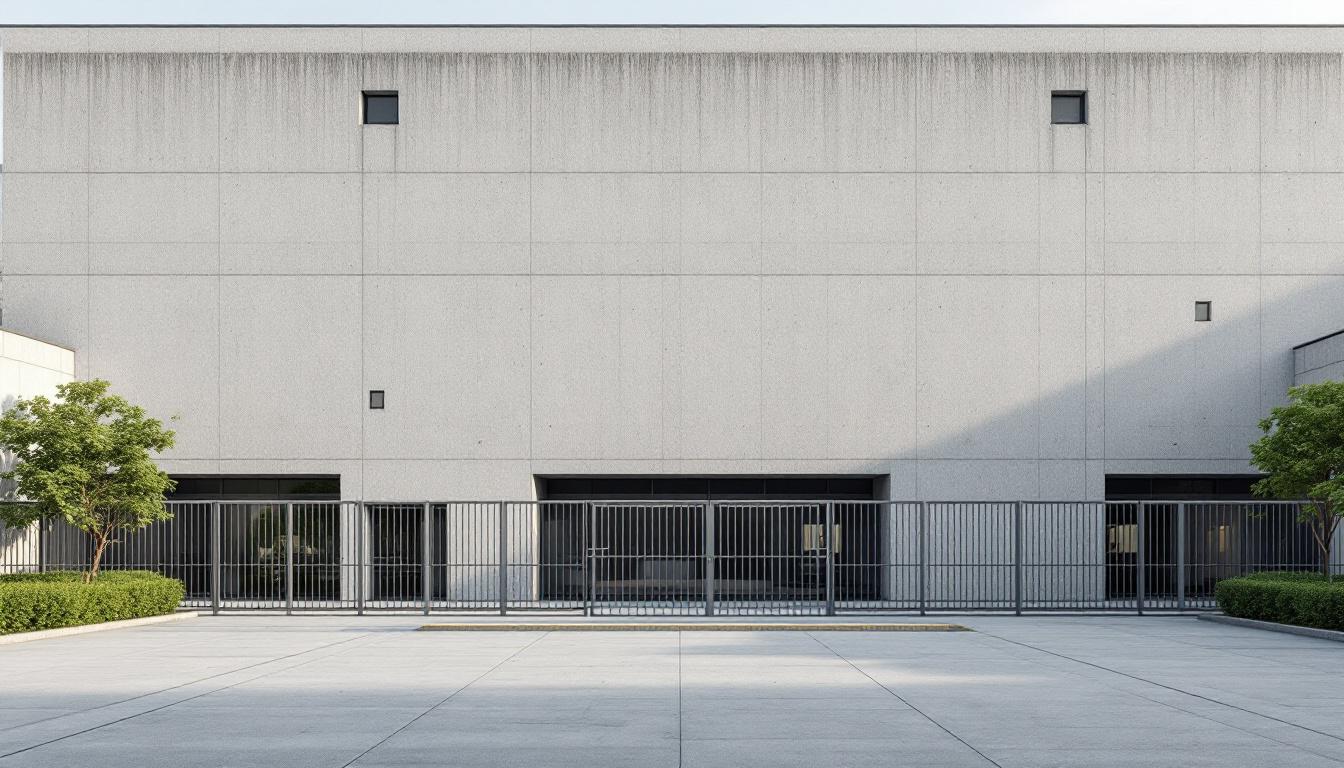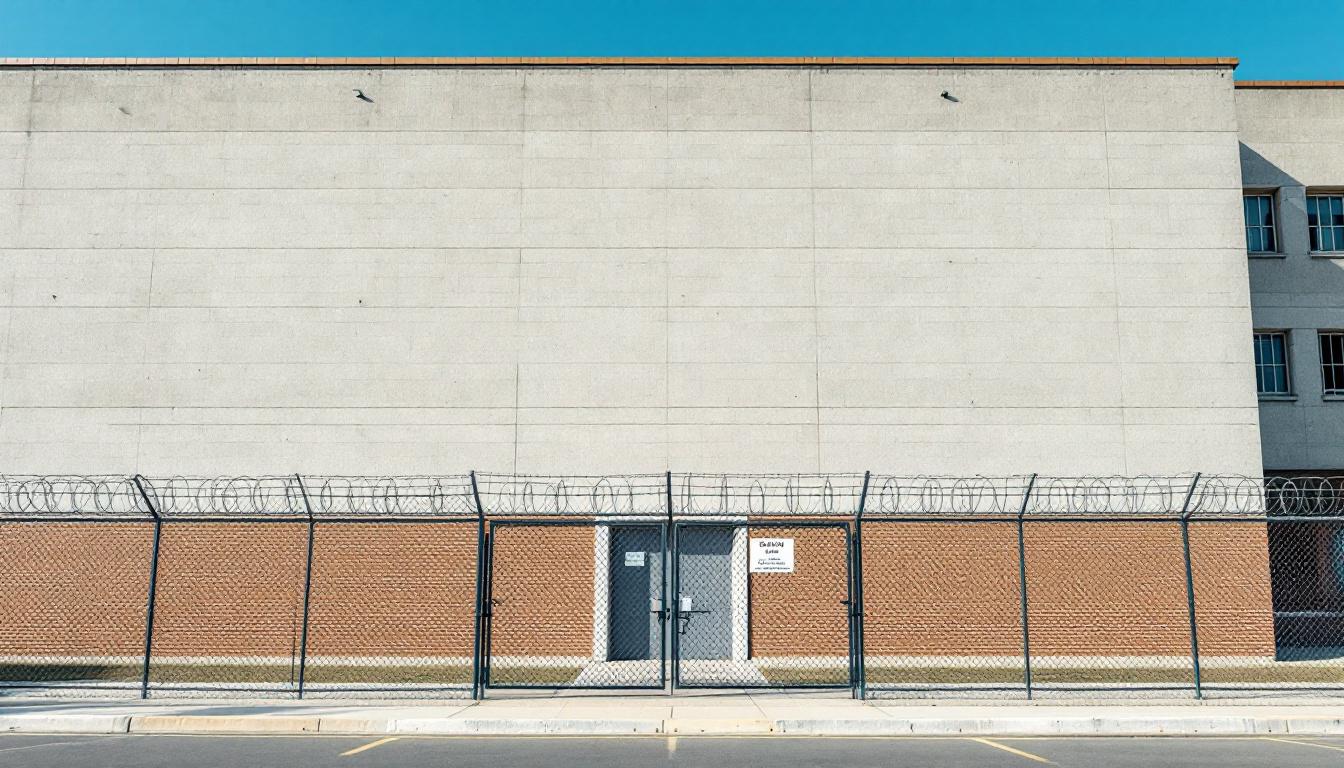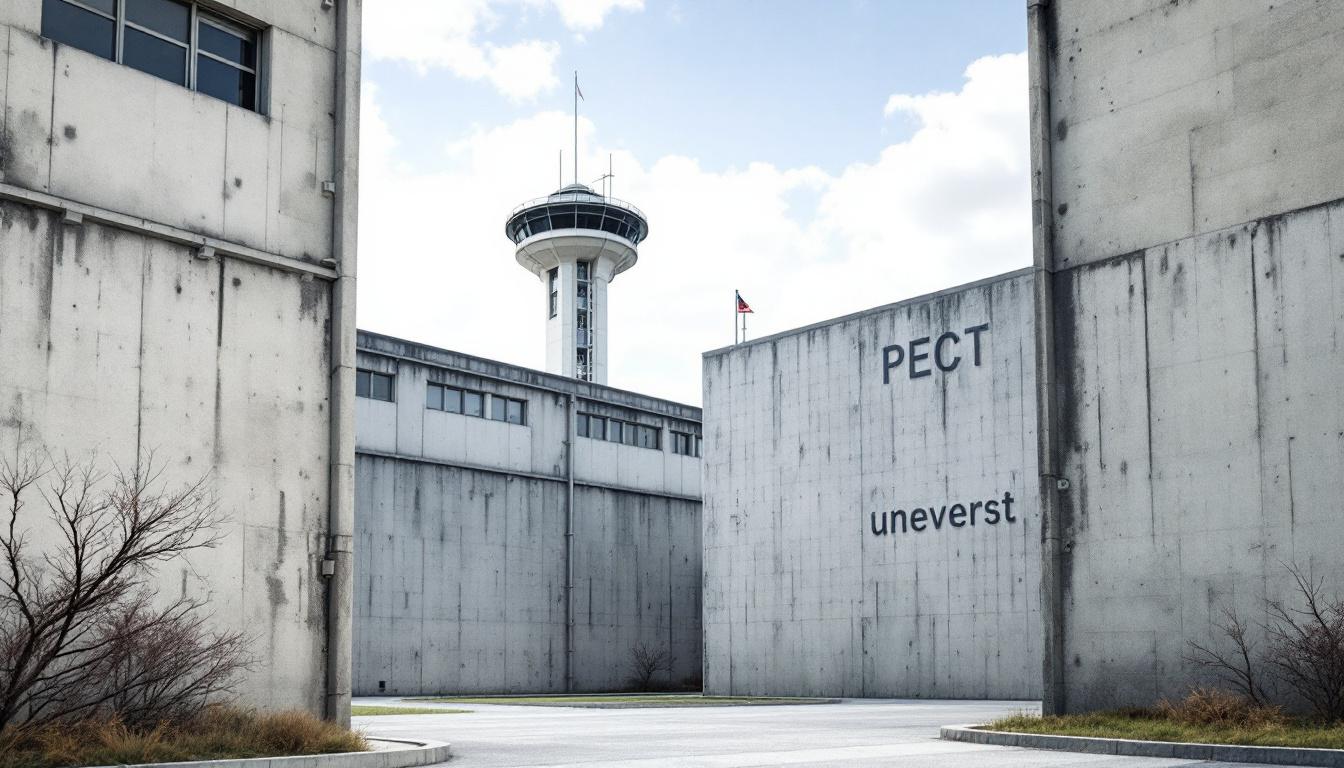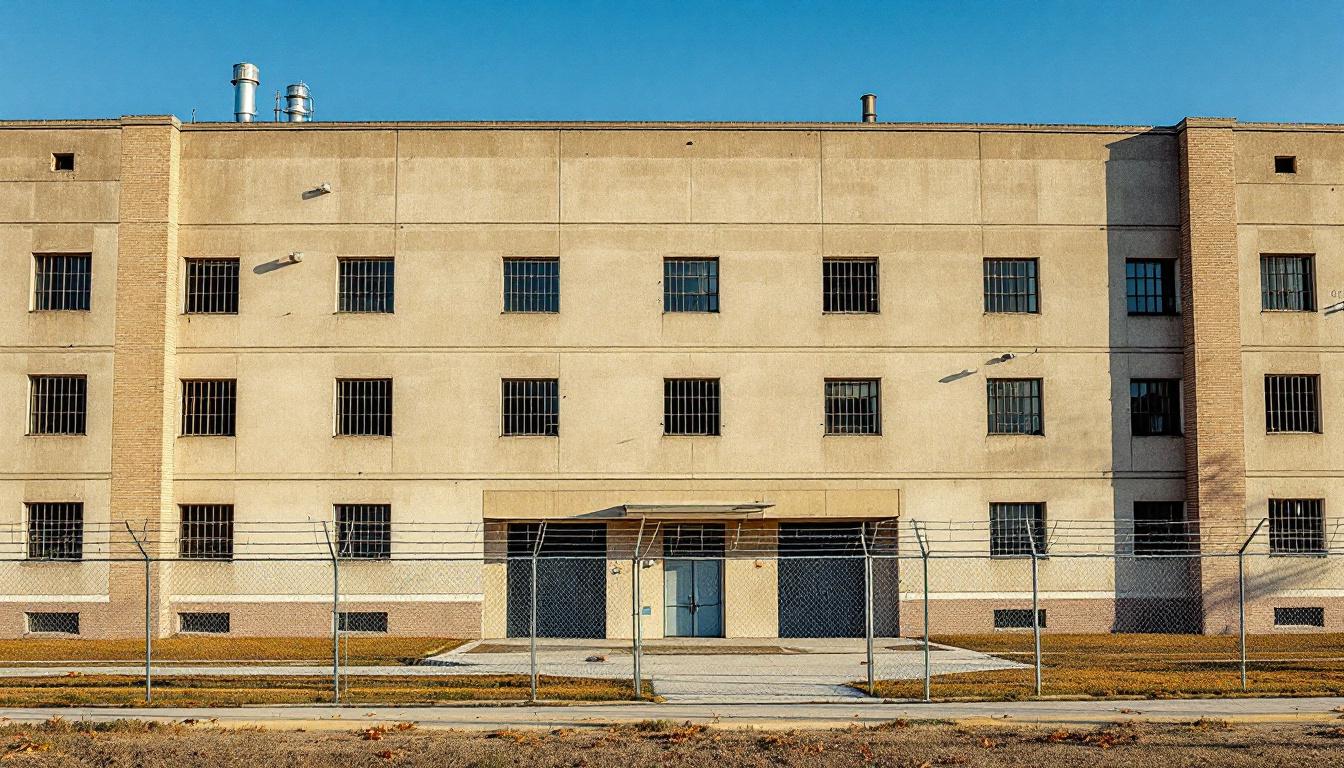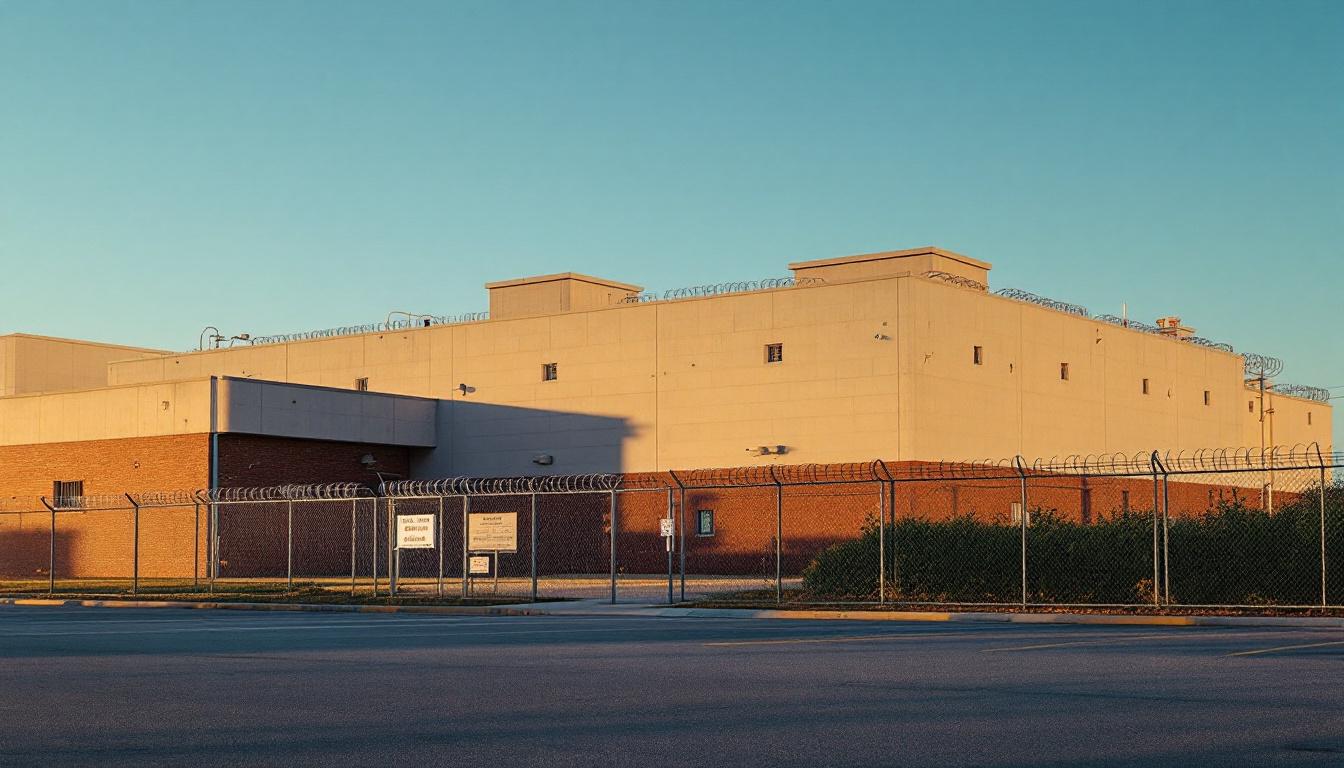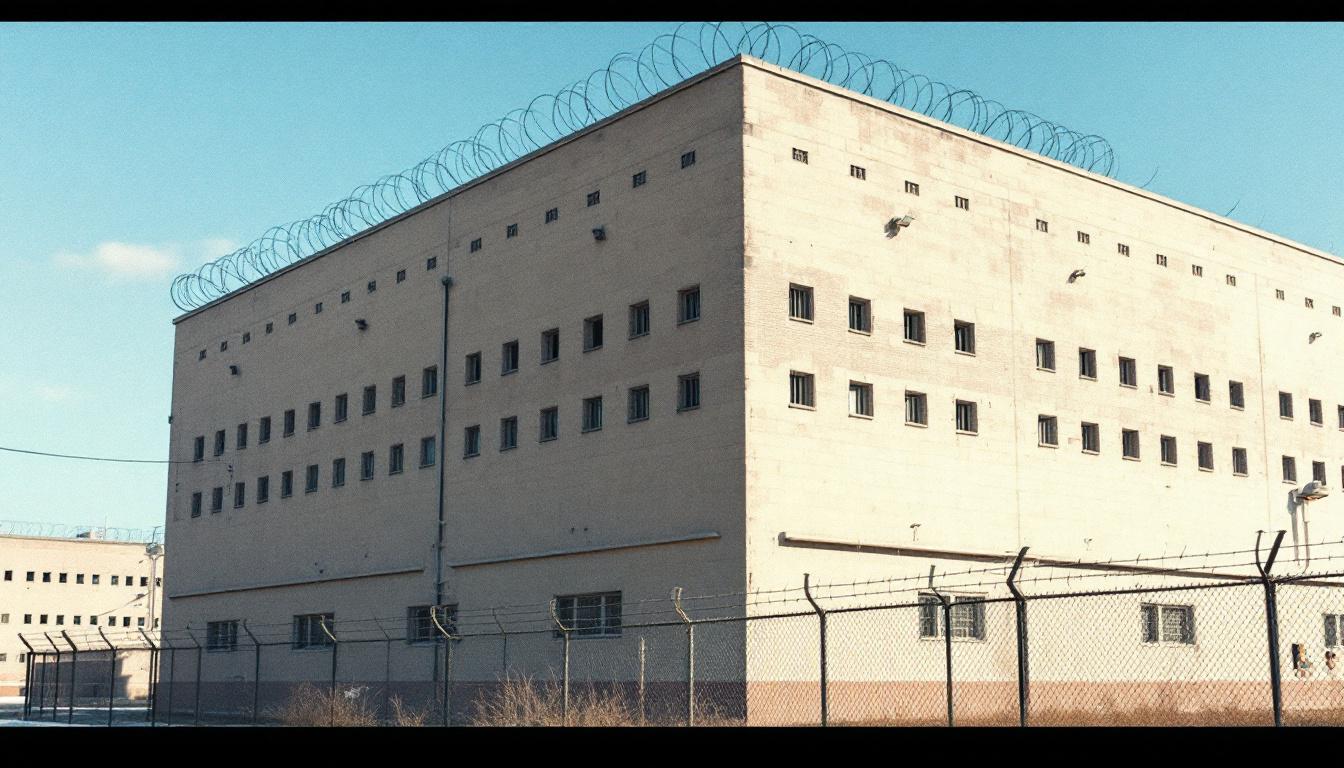
Quick Navigation
How to contact an inmate at Livingston County Jail
This comprehensive guide will walk you through how to connect with an inmate at Livingston County Jail. Follow the steps below to find an inmate and send letters and photos:
- Search for the inmate using our search tool below
- Create your account or log in to Penmate
- Write your message (up to 6,000 characters)
- Send instantly - inmates receive printed copies daily
Find an Inmate
Search for an inmate to start communicating today
Tip: You can search by first name, last name, or inmate ID number
To contact a person at Livingston County Jail start by searching for the person on the official facility website. Perform a search by following these steps:
- Step 1: Enter their first name and last name into the search form and click "Search"
- Step 2: Locate their inmate record
- Step 3: Write down their Inmate ID and any housing information provided
Important! Be sure to enter the person's full name. Nicknames should not be used.
How to Send Messages to Inmates

You can use your phone or computer to send emails, letters, and photos to an inmate. Messages are sent electronically to inmate tablets or kiosks at the facility. If you would like to send a message, start by searching for an inmate at Livingston County Jail.
Sending Photos and Postcards

A great way to send love and support to a loved one at Livingston County Jail is to send photos and postcards. It only takes a few minutes to send photos from your phone and it makes a huge difference. You can also mail postcards with words of support and inspiration, or design your own postcard for special moments like birthdays and holidays.
Important! Be sure not to send any explicit photos or they may not be approved by the facility. You can also use a photo printing app like Penmate to make sure your photos are printed at the correct size (4x6 or 3x5) and are mailed according to the rules and regulations of Livingston County Jail.
Frequently asked questions about Livingston County Jail
-
How long does it take to deliver a message?
If you're sending an email message your letter is usually delivered within 24-48 hours. For messages sent via mail you should expect delivery within 3-7 days. All messages will need be approved by Livingston County Jail.
-
How much does it cost to send a message to Livingston County Jail?
You can send a message free using your phone or mail a message via USPS for the price of a $0.60 stamp and envelope. You can also purchase credits or e-stamps from services starting at $1.99.
-
What services can I use to contact an inmate at Livingston County Jail?
Penmate
You can use Penmate to send letters and photos to an inmate from your phone. It's an easy way to stay in touch during your loved one's incarceration. Use the inmate locator to find an inmate's location and contact information, then you can send messages within a few minutes.
Securus messaging
Securus may be another option for communicating with an inmate at Livingston County Jail. You can create a friends and family account and purchase credits to send messages. All messages will be reviewed and must be approved by the facility.
JPay
Some county jails and state prisons may support sending messages with JPay. You must register an account with the system, find your loved one, and purchase stamps to send messages. For some locations you can also attach photos.
Smart Jail Mail
You may also check if Smart Jail Mail is available at Livingston County Jail. Smart Jail Mail is operated by Smart Communications and has contracted with some state and county jails. After purchasing credits, your messages and photos are sent to the facility, printed out, and then handed out to your loved one.
-
What is the mailing address of Livingston County Jail?
Mailing address:
Livingston County Jail
150 S Highlander Way
Howell, MI 48843
Phone: (517) 546-2445Business hours:
- Monday: Open 24 hours
- Tuesday: Open 24 hours
- Wednesday: Open 24 hours
- Thursday: Open 24 hours
- Friday: Open 24 hours
- Saturday: Open 24 hours
- Sunday: Open 24 hours
-
What are the visiting hours at Livingston County Jail?
Visiting hours at Livingston County Jail vary by housing unit and security level. Generally, visits are scheduled on weekends and holidays, with some facilities offering weekday visits. Contact the facility directly at (517) 546-2445 or check their website for the current visiting schedule. Visits typically last 30-60 minutes and must be scheduled in advance.
-
What items are prohibited when sending mail to Livingston County Jail?
Prohibited items typically include: cash, personal checks, stamps, stickers, glitter, glue, tape, staples, paperclips, polaroid photos, musical or blank greeting cards, hardcover books, magazines with staples, and any items containing metal or electronics. Only send letters on plain white paper with blue or black ink. Photos must be printed on regular photo paper (no Polaroids). Always check with Livingston County Jail for their specific mail policies.
-
How do I send money to an inmate at Livingston County Jail?
You can send money to an inmate at Livingston County Jail through several methods: 1) Online using JPay, Access Corrections, or the facility's approved vendor, 2) Money orders mailed directly to the facility with the inmate's name and ID number, 3) Kiosks located in the facility lobby, or 4) Over the phone using a credit or debit card. Fees vary by method, typically ranging from $2.95 to $11.95 per transaction.
-
Can I schedule a video visit with an inmate at Livingston County Jail?
Many facilities now offer video visitation as an alternative to in-person visits. At Livingston County Jail, video visits may be available through services like Penmate, Securus Video Connect, GTL, or ICSolutions. Video visits typically cost $10-20 for 20-30 minutes and must be scheduled in advance. You'll need a computer or smartphone with a camera and reliable internet connection. Contact the facility for their specific video visitation policies and approved vendors.
-
What identification do I need to visit an inmate at Livingston County Jail?
All visitors must present valid government-issued photo identification such as a driver's license, state ID, passport, or military ID. Minors must be accompanied by a parent or legal guardian who can provide the minor's birth certificate. Some facilities require visitors to be on the inmate's approved visitation list, which may require a background check. Contact Livingston County Jail for specific ID requirements and visitor approval procedures.
-
How can I find out an inmate's release date?
To find an inmate's release date at Livingston County Jail, you can: 1) Use the online inmate search tool if available, 2) Call the facility's records department, 3) Contact the inmate's case manager or counselor, or 4) Have the inmate provide this information during a call or visit. For privacy reasons, some facilities only release this information to immediate family members.
Facility Overview
Contact Information
Livingston County Jail150 S Highlander Way
Howell, MI 48843
Phone: (517) 546-2445
Official Website
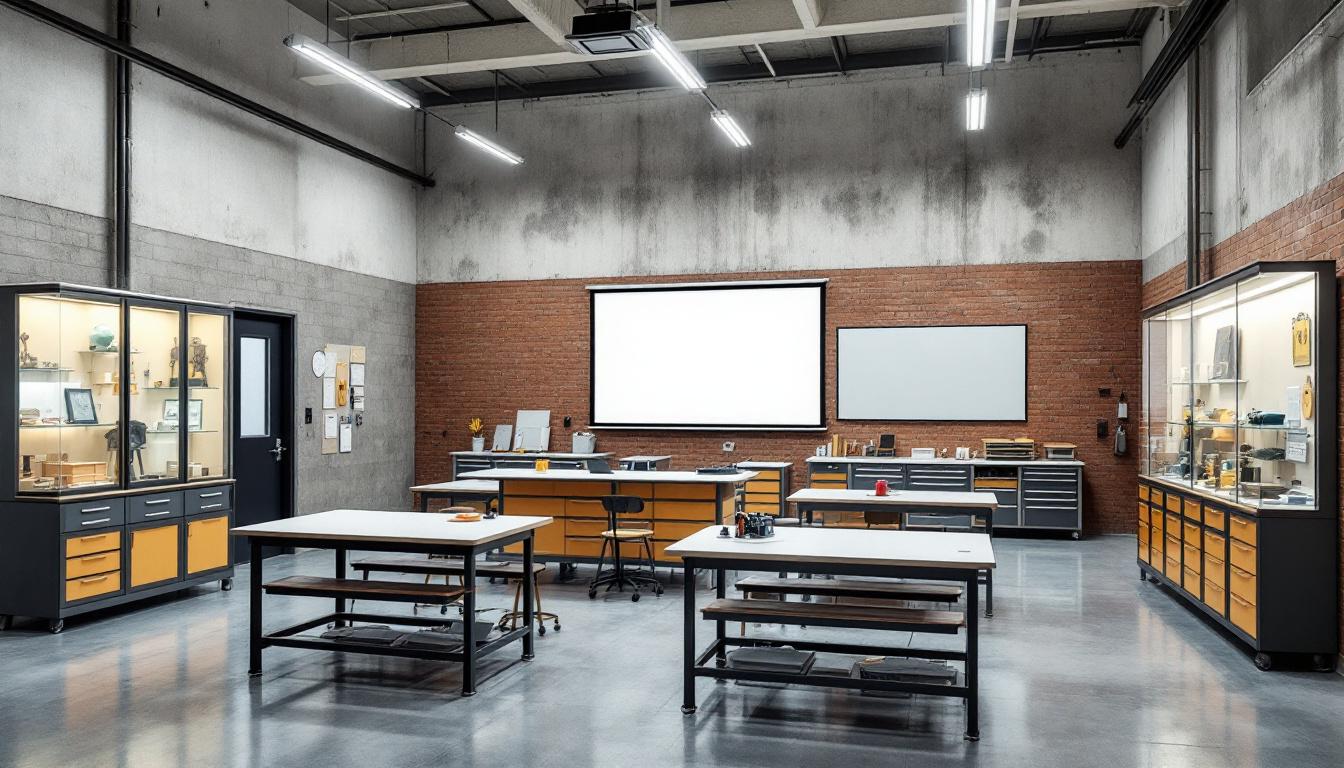
About Livingston County Jail
Correctional facilities across Michigan's heartland serve as crucial components in the state's rehabilitation framework, and within this network, Livingston operates as a dedicated institution focused on transformative programming and community reintegration. Positioned in Howell, this MI correctional facility draws from the region's collaborative spirit to develop comprehensive approaches that benefit both the population services and the broader community it serves.
The facility's programming philosophy emphasizes skill development and educational opportunities that prepare individuals for successful community reentry. Through partnerships with local organizations and educational institutions throughout the Howell area, residents typically have access to vocational training, substance abuse counseling, and mental health services designed to address underlying factors that may have contributed to their incarceration. These programs often include literacy improvement initiatives, job readiness workshops, and family reunification services that strengthen connections between residents and their loved ones.
Serving the greater Livingston County region, this correctional facility operates within Michigan's broader rehabilitation mission while maintaining strong ties to local community resources. The institution generally provides medical care, recreational activities, and religious services, creating an environment that supports personal growth and accountability. Family members seeking information about visitation, programming participation, or reentry planning can typically access support through various communication channels, reflecting the facility's commitment to maintaining family bonds that prove essential for successful rehabilitation outcomes.
Programs & Services
Comprehensive support services form the foundation of rehabilitation efforts, creating pathways for meaningful change through targeted interventions and skill development. The facility's approach centers on addressing individual needs while building essential competencies that serve the population both during incarceration and upon release. This multi-faceted framework typically encompasses educational advancement, therapeutic intervention, and practical skill acquisition designed to foster personal growth and successful community reintegration.
Educational and vocational programs provide structured opportunities for academic achievement and career preparation. Vocational education initiatives may supply hands-on training in various trades, helping participants develop marketable skills that enhance employment prospects. Traditional education programs often include literacy improvement, GED preparation, and continuing education courses that address diverse learning needs. Moreover, specialized training in areas such as upholstery and printing typically offers practical experience in trades that can translate directly into post-release employment opportunities.
Therapeutic and support services address the comprehensive needs of the population through individualized interventions and community-focused programming. Individual counseling sessions may supply personalized guidance for addressing personal challenges, developing coping strategies, and preparing for successful reentry. Religious services often provide spiritual support and community connection, while prisoner reentry initiatives typically focus on practical preparation for community transition. These programs work collectively to create a supportive environment that encourages personal responsibility, skill development, and the formation of positive relationships essential for long-term success.
Daily Life & Visitation
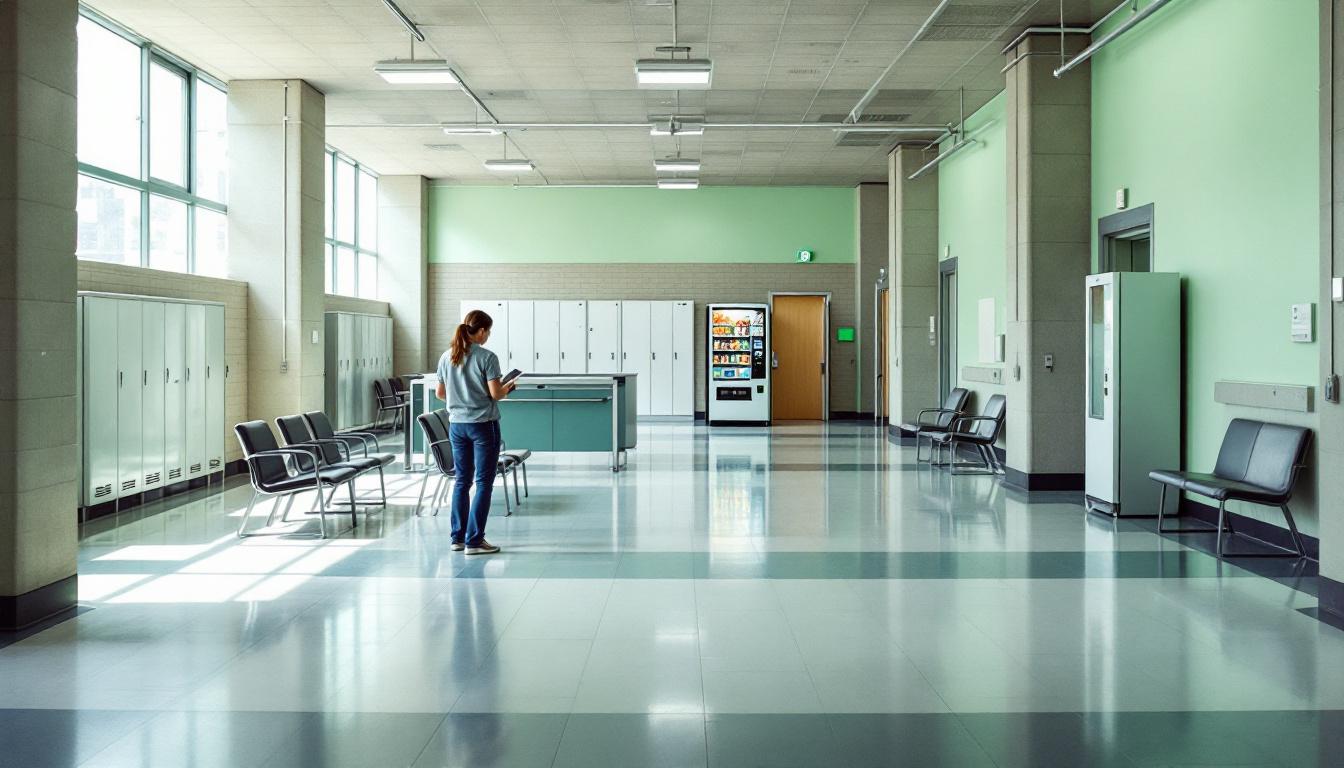
Systematic organization shapes every aspect of the experience for the population, with structured schedules and clear protocols governing daily activities. At present, residents actively participate in a regimented routine that typically begins with early morning counts and continues through designated periods for meals, programming, work assignments, and recreation. The facility operates on a schedule that generally includes multiple security checks throughout the day, ensuring accountability while maintaining order within the housing units.
Living accommodations at the facility typically consist of shared cells or dormitory-style housing units, depending on security classification and available space. The population generally resides in areas that may accommodate two or more individuals, with basic furnishings and limited personal storage space for approved items. Moreover, dining arrangements usually involve scheduled meal times in designated areas, with the population receiving meals that meet nutritional standards. Residents can often supplement their diet through commissary purchases, which may include snacks, beverages, and personal care items when funds are available through their accounts.
Structured programming schedules supply the population with various opportunities for personal development and skill building. Work assignments within the facility often include kitchen duties, maintenance tasks, laundry services, and other institutional operations that help maintain daily operations. Whereas recreational activities typically provide physical exercise and leisure time, these may include access to outdoor yards, gymnasium facilities, or common areas during designated periods. Family connections remain important through visitation programs that usually operate on scheduled days, along with telephone and written correspondence options that help maintain relationships with loved ones in the community.
Ready to Connect?
Start communicating with your loved one today
Search for an Inmate
